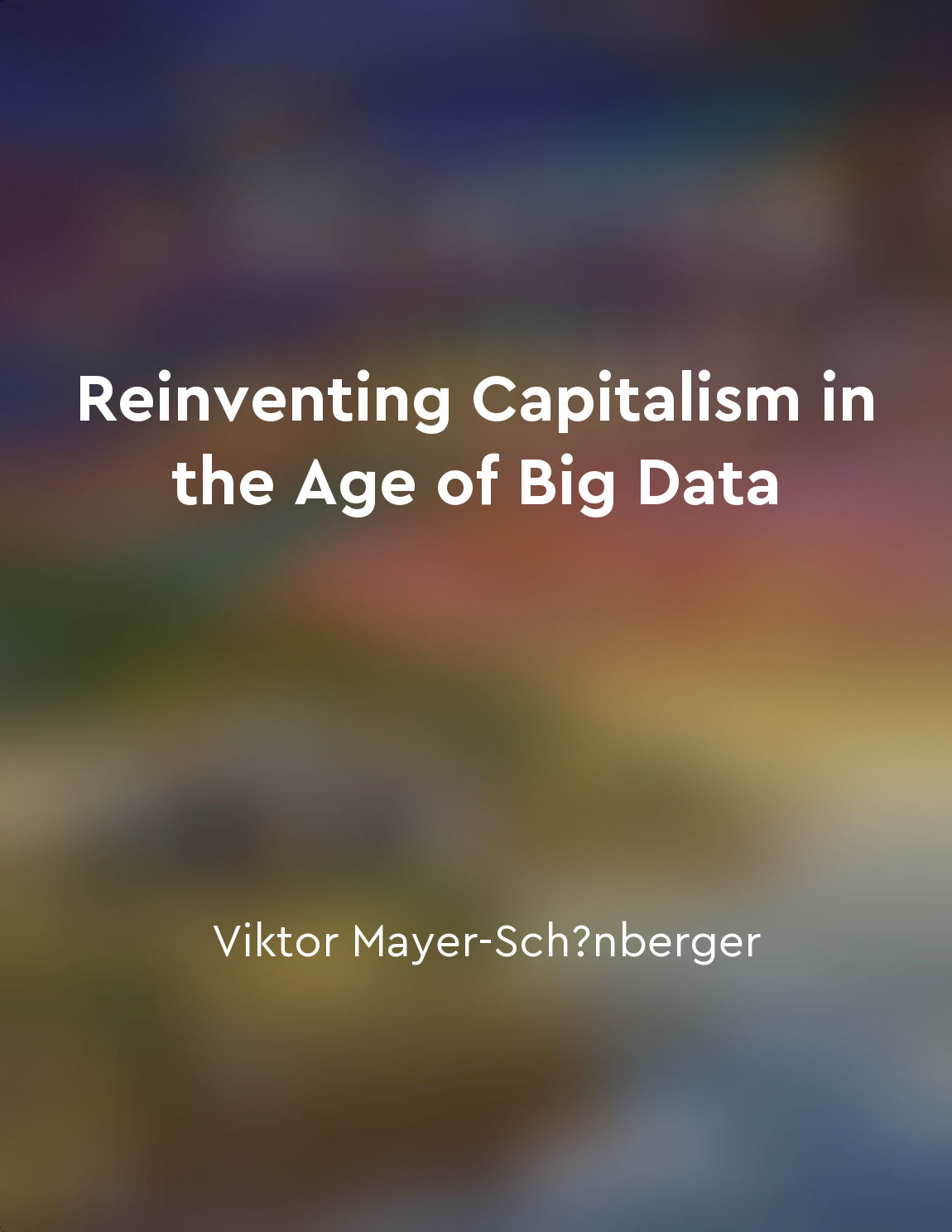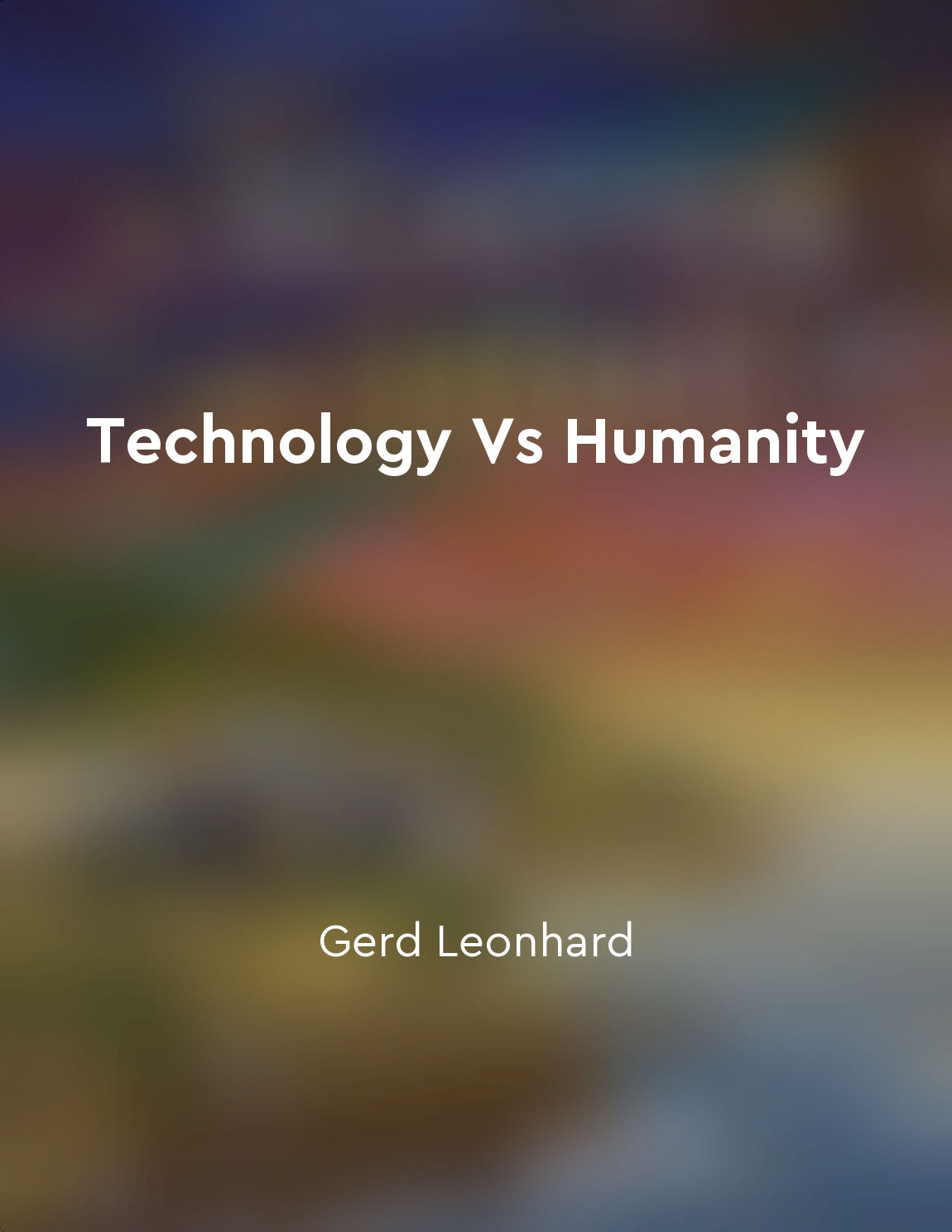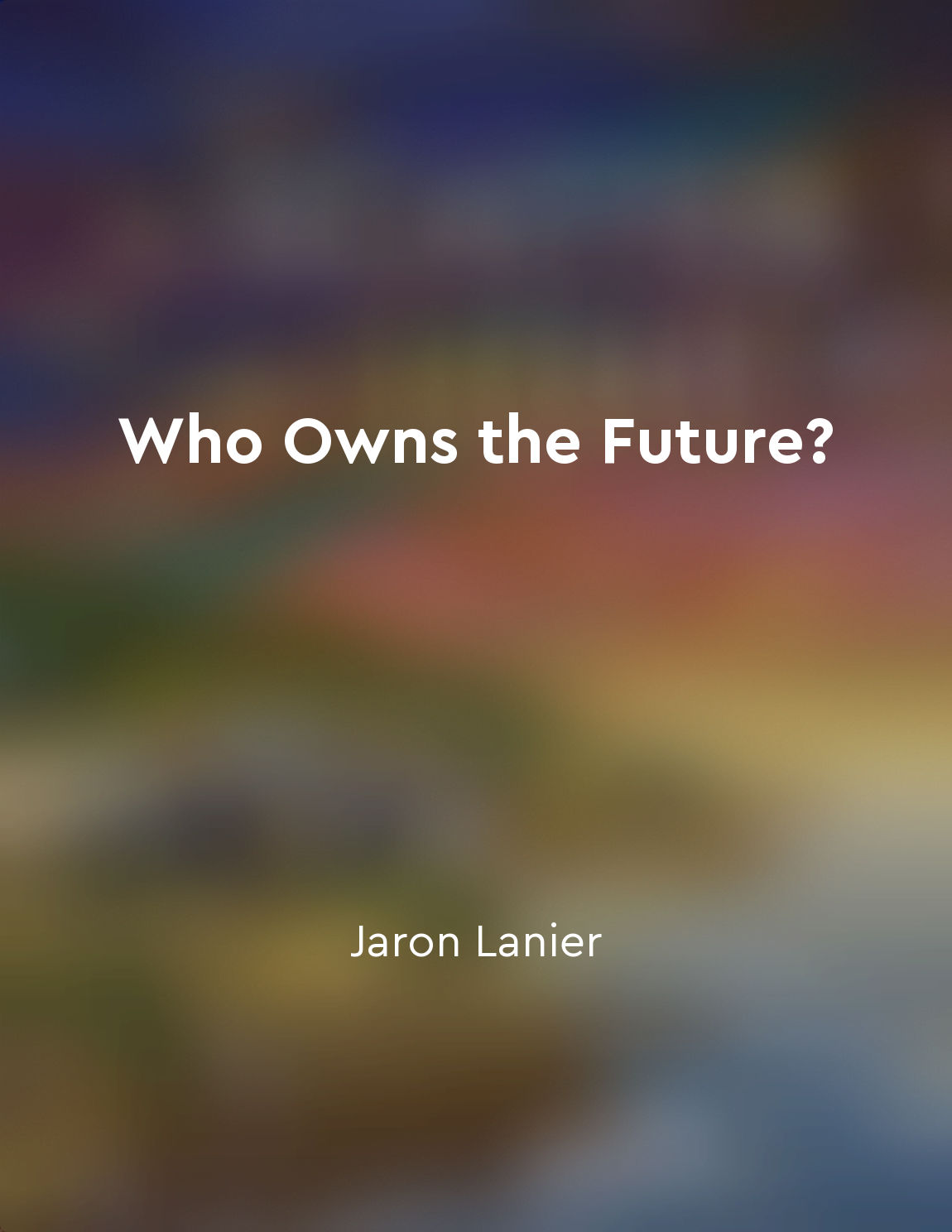Technology shapes our freedoms from "summary" of The Future of Ideas by Lawrence Lessig
In our digital age, technology plays a critical role in shaping our freedoms. The architecture of the Internet, the design of our devices, and the code that governs our interactions online all have a direct impact on the extent to which we can exercise our rights and liberties. The choices made by engineers, programmers, and policymakers in developing and implementing these technologies have far-reaching consequences for our ability to access information, express ourselves, and engage with others in the digital realm. The Internet, conceived as a decentralized network that could facilitate the free flow of information, has the potential to empower individuals and foster democratic participation. However, the underlying infrastructure of the Internet is not neutral; it is shaped by technical decisions that can either enhance or restrict our freedoms. For example, the design of search algorithms, the architecture of social media platforms, and the terms of service that govern our online activities all influence the ways in which we can navigate and communicat...Similar Posts
Embracing new power requires a shift in mindset
To understand and harness the potential of new power, individuals and organizations must be willing to undergo a fundamental sh...
Language use reveals personality traits
One of the fascinating aspects of human behavior that can be uncovered through data analysis is the relationship between langua...

Continuous learning and adaptation are necessary in a datadriven world
In a world driven by data, the ability to continuously learn and adapt is no longer just a valuable skill; it is a necessity. T...

The role of government in data regulation is debated
The ongoing discussion surrounding government involvement in regulating data is a point of contention among various stakeholder...

Surveillance technology is pervasive in society
Surveillance technology permeates every aspect of contemporary life, from the moment we step out of our homes to the time we re...

Technology has changed the way we view privacy
In our modern world, the advent of technology has brought about a significant shift in the way we perceive privacy. With the ri...

Mental health is a growing concern
The relentless march of technology has brought about tremendous changes in our lives, transforming the way we work, communicate...

Data should not be centralized in the hands of a few powerful corporations
A central idea in 'Who Owns the Future?' is the danger of allowing data to be controlled by a small number of powerful corporat...

The quest for knowledge is leading to breakthroughs in medicine, but also raising ethical dilemmas
The relentless pursuit of knowledge has propelled humanity to great heights, particularly in the field of medicine. Through res...
